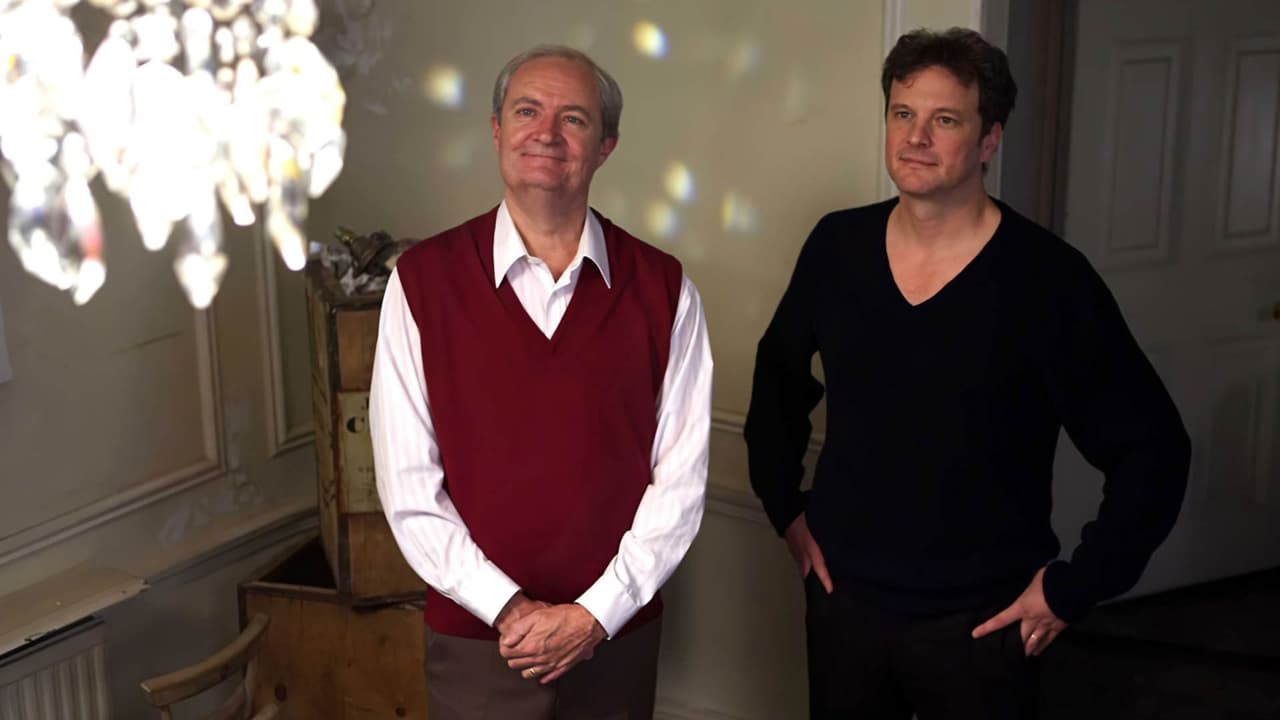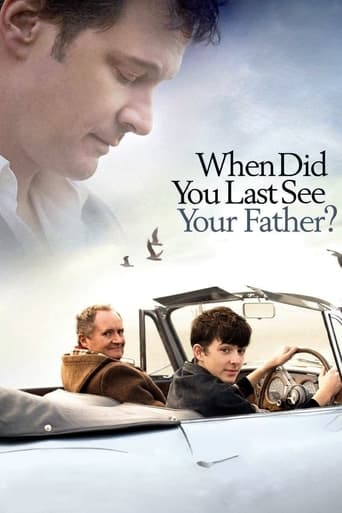

Based on British author Blake Morrison's memoir and directed by Shopgirl's Anand Tucker, And When Did You Last See Your Father? is a beautifully made and understated little gem that is one of the most affecting and touching tales of father/son relationships that's been seen on screen and packs an emotional kick that very few films can muster.There's a rawness and honesty to Father, something that can only be attained from someone's personnel and relatable experience, obviously something Father inherits from Morrison's source material. Tucker's direction is superb, he does a great job of capturing both the trials and triumphs of a father son relationship and Morrison's was a tricky one, with his unique fathering style from doctor and larrikin Arthur occurring. Where Father truly succeeds is in making us care for this man despite him not always being all that honest or even all that kind, but his human, flaws and all.At the heart of this tale is the great pairing of British mainstay Jim Broadbent and everyone's favourite stuttering king Colin Firth. While the young Blake is played by Matthew Beard the real heart and soul of the film stems from Firth's older Blake dealing with the ailing family patriarch as he tries desperately to share one more "moment" with his father who's health and mind is failing him. Broadbent and Firth bring a quiet gravitas to proceedings and they don't feel or seem to be actors playing these real life figures, they in many ways become them. These two accomplished performers ad greatly to the realness of Tucker's film and are a huge reason as to why Father feels so different from many such family dramas of the same nature.It's got its faults and flaws like the characters at the heart of its tale but Father slowly builds to an emotional payoff that is both life affirming and uniquely touching. It asks and answers questions that will be relatable to anyone from anywhere that is part of a family and particularly for those that happen to be a son to a father. A lovely film, And When Did You Last See Your Father? is an underrated gem worthy of your time and easily one of the most accomplished films about the relationship between parents and children that's been produced in quite some time up until this very day.4 poorly chosen camping spots out of 5
... View MoreIt's the English countryside and a young boy coming of age, it's a middle aged man coming back to see his father on his deathbed to confront his personal demons surrounding his childhood and the shortcomings of a man who was quick with a joke but a bit slow with integrity. This is a good tear jerker that hits all the right notes and is well acted to boot. It's dreamy, and bittersweet, not a lot of action but a ton of character development and overall a fine movie. I could have gone for a lot more skin with sex scenes to spice things up a bit but then all the blue haired grannies might choke on their biscuits and tea while watching it. This is a solid drama/coming of age/remembering your dad kind of affair.
... View MoreAt the end of the last conversation I had with my father before he died, he called me a horse's ass. That conversation was the final topper to a very complicated relationship as my father was a man that I feared as a child and pretty much disliked as an adult. Yet, some of the fondest memories I have of my life involve my father and our times together.I guess all relationships between fathers and sons could best be described as knotty, but the one shown in this film, I must admit, hit very close to home. Perhaps that's why I enjoyed the film as much as I did, and it appears from the comments of viewers and critics that I enjoyed it far more than most viewers.The basic story, I'm sure, has been repeated countless times throughout history and will be repeated countless times in the future. Blake, a highly successful writer and editor, never received the recognition of "a job well done" from his father. Arthur is a popular physician and raconteur who constantly failed to show his admiration for his son's profession.Blake realized at an early age that his father had been having a long-term affair with his aunt, and this knowledge colored every part of their relationship. One thing that Blake cannot understand is why his mother stays married to his father for he is sure that she, also, is aware of her husband's relationship with her sister.The story begins in the present, but most of it is told in flashbacks as Arthur is dying. The adult Blake is played by Colin Firth with just the right amount of distance and depression. He is not a happy man because he never has been able to come to terms with his feelings for his father. Teenaged Blake is played beautifully by Matthew Beard. It is this Blake that we see most of in the film, and his performance is impressive.Juliet Stevenson is a wonderful actress, and she gives this film a strong, quiet - but not necessarily longtime suffering - performance as Blake's mother. She is one of those women whom you never realize her strength and resourcefulness until push comes to shove.Jim Broadbent may be a touch over the top as Arthur, but, for me, he hits the nail on the head. We all have public and private faces. Arthur rarely reveals the private one. I found myself liking him in spite of myself.As I said, this film turned out to be very personal to me. I found myself sometimes being amazed at how much Arthur was like my own father and Blake so much like myself. Even without the personal insight, I think you will find this a rewarding look at the bond between two strong, yet totally different men - OR - the bond between two strong, completely similar men. Fathers and sons - will that connection ever be fully understood?
... View MoreAt its simplest this movie is about the love between two men - a father and son - that in spite of a deep desire to connect, cannot be shared between the two. At least not in life. And not until it is too late. Sadly, it is a story that is all too prevalent in our society.The film reflects this theme again and again with flashbacks of the son's experiences growing up with the father. Of course this is the son's world view and the film does not cover the father's perspective of events. So the question remains unanswered - was there truly no point of contact for the love between the two, or was the son blind to, or incapable of, receiving the love of the father?Well worth the investment of 92 minutes of your time.
... View More